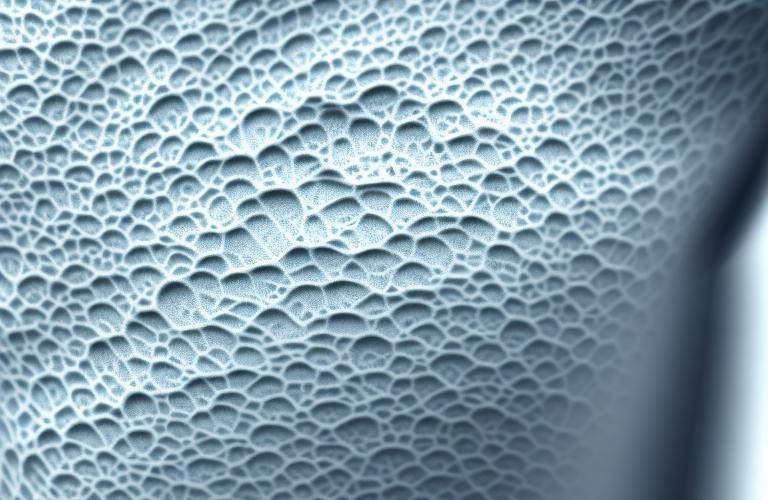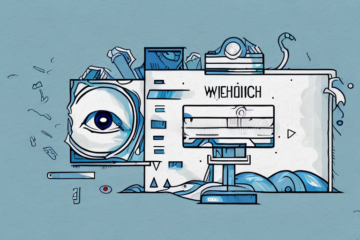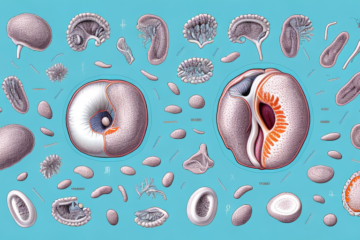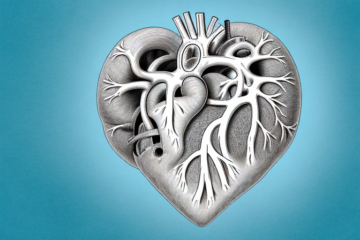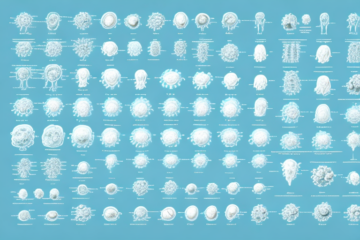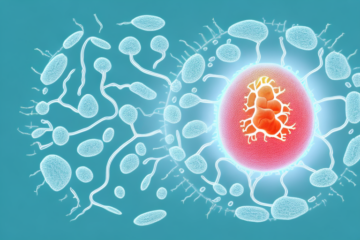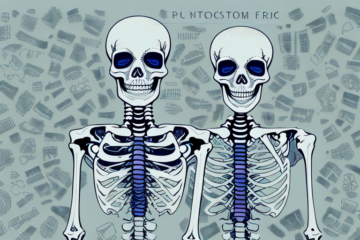Lichen Sclerosus is a chronic skin condition that primarily affects women and girls, though it can also affect men. It is estimated that around 1 in 300 women will develop Lichen Sclerosus at some point in their lives. Despite being a relatively common condition, it is not widely understood or talked about, which can make diagnosis and management difficult. In this article, we will take an in-depth look at Lichen Sclerosus, including its symptoms, causes, and treatment options.
Understanding the Basics of Lichen Sclerosus
Lichen Sclerosus, also known as Lichen Sclerosis, is a chronic inflammatory skin disease that primarily affects the genital and anal areas of the body. It causes thinning, white patches of skin that can be itchy, painful, or both. In severe cases, the patches can cause scarring that affects the function of the affected area.
While the exact cause of Lichen Sclerosus is unknown, it is believed to be an autoimmune disorder. It is more common in women than men and typically occurs in postmenopausal women. However, it can also affect men and children. Treatment options include topical corticosteroids, immunosuppressants, and surgery in severe cases. It is important to seek medical attention if you suspect you may have Lichen Sclerosus, as early diagnosis and treatment can help prevent complications.
Demystifying Lichen Sclerosus: Definition and Types
There are two types of Lichen Sclerosus: genital and extragenital. Genital Lichen Sclerosus affects the genital and perianal areas, while extragenital Lichen Sclerosus can occur anywhere on the body, although it is more commonly found on the upper body, arms, and breasts.
Lichen Sclerosus is a chronic inflammatory skin condition that affects both men and women, but is more commonly found in women. It is characterized by white, patchy skin that is thinner than normal skin and can cause itching, pain, and discomfort. The exact cause of Lichen Sclerosus is unknown, but it is believed to be an autoimmune disorder. While there is no cure for Lichen Sclerosus, there are treatments available to manage symptoms and prevent complications.
What Causes Lichen Sclerosus?
The exact cause of Lichen Sclerosus is unknown, but there are several factors that are thought to contribute to its development, including hormonal imbalances, genetic predisposition, autoimmune disorders, and environmental triggers such as trauma, infection, or irritation.
Recent studies have also suggested a possible link between Lichen Sclerosus and chronic inflammation. Inflammation is the body’s natural response to injury or infection, but when it becomes chronic, it can lead to tissue damage and contribute to the development of various diseases, including Lichen Sclerosus. Further research is needed to fully understand the relationship between chronic inflammation and Lichen Sclerosus, but it is an area of active investigation in the medical community.
Who is at Risk for Lichen Sclerosus?
While Lichen Sclerosus can affect both men and women, it is four times more common in women, particularly those who have gone through menopause. The condition can occur at any age, but it is most commonly diagnosed in women between the ages of 40 and 60. Men and boys can also develop Lichen Sclerosus, although this is far less common.
There are certain risk factors that may increase the likelihood of developing Lichen Sclerosus. These include having an autoimmune disease, such as thyroid disease or vitiligo, or a family history of the condition. Additionally, women who have had their ovaries removed or who have a history of abnormal cells on their vulva may be at higher risk.
It is important to note that Lichen Sclerosus is not contagious and cannot be spread through sexual contact or other means. However, it is a chronic condition that can cause discomfort and affect quality of life if left untreated. If you are experiencing symptoms such as itching, pain, or changes in the appearance of your genital area, it is important to speak with a healthcare provider for proper diagnosis and treatment.
Recognizing the Symptoms of Lichen Sclerosus
The symptoms of Lichen Sclerosus can vary from person to person, but some of the most common symptoms include:
- White patches of skin that are thin and fragile
- Itchiness and discomfort in the affected area
- Pain during sex or urination for women
- Tearing or bleeding during sex or bowel movements
- Difficulty retracting the foreskin for men and boys
- Redness or swelling in the affected area
If you are experiencing any of these symptoms, it is important to see a healthcare professional as soon as possible.
Lichen Sclerosus is a chronic skin condition that affects the genital and anal areas. It is more common in women than men, and it can occur at any age. The exact cause of Lichen Sclerosus is unknown, but it is believed to be an autoimmune disorder. In addition to the physical symptoms, Lichen Sclerosus can also have a significant impact on a person’s mental health and quality of life. It is important to seek treatment and support if you are diagnosed with this condition.
The Diagnostic Process for Lichen Sclerosus
Lichen Sclerosus can sometimes be difficult to diagnose, as its symptoms can mimic those of other conditions. The diagnostic process will usually involve a physical examination, as well as a biopsy of the affected tissue to confirm the diagnosis. Blood tests may also be carried out to check for autoimmune disorders and other underlying health conditions.
In addition to a physical examination and biopsy, imaging tests such as ultrasound or MRI may be used to evaluate the extent of the disease and rule out other conditions. It is important to note that early diagnosis and treatment of Lichen Sclerosus can help prevent complications such as scarring and discomfort.
Once a diagnosis is confirmed, treatment options may include topical or oral medications to reduce inflammation and itching, as well as surgery in severe cases. Regular follow-up appointments with a healthcare provider are important to monitor the condition and adjust treatment as needed.
Complications Associated with Lichen Sclerosus
If left untreated, Lichen Sclerosus can cause a range of complications, including:
- Scarring, which can lead to a loss of function in the affected area
- Infections, which can occur if the skin tears or breaks down
- Cancer, which is more likely to develop in areas of long-standing Lichen Sclerosus
It is important to seek treatment for Lichen Sclerosus as soon as possible to minimize the risk of complications.
Some additional information about Lichen Sclerosus is that it is a chronic condition that can affect both men and women, but is more common in women. It is characterized by white, patchy skin that is thin and itchy. The cause of Lichen Sclerosus is unknown, but it is thought to be related to an overactive immune system. While there is no cure for Lichen Sclerosus, there are treatments available to manage symptoms and prevent complications.
How to Treat Lichen Sclerosus: Medical and Natural Remedies
There are several treatment options available for Lichen Sclerosus, depending on the severity of the condition and the location of the affected skin. These include:
Conventional Treatment Options for Lichen Sclerosus
The most commonly prescribed treatment for Lichen Sclerosus is the application of a topical steroid cream, which can help to reduce inflammation and itching. In more severe cases, oral corticosteroids or immunosuppressants may be prescribed.
Topical Ointments for Managing Lichen Sclerosus Symptoms
As well as steroid creams, other topical ointments may be used to manage the symptoms of Lichen Sclerosus, including emollients to help soothe dry and itchy skin, and antifungal creams to prevent and treat infections in the affected area.
Surgical Intervention for Advanced Stages of Lichen Sclerosus
In advanced cases of Lichen Sclerosus, surgery may be necessary to remove damaged tissue and improve function in the affected area.
Self-Care Strategies to Help Manage Lichen Sclerosus Symptoms
There are several self-care strategies that can help to manage the symptoms of Lichen Sclerosus, including:
- Avoiding tight clothing and underwear that can irritate the skin
- Using fragrance-free soaps and detergents
- Applying a moisturizer to the affected area to soothe dry skin
- Avoiding scratching or rubbing the affected skin
Natural Remedies for Lichen Sclerosus
In addition to conventional treatments, there are also natural remedies that may help to manage the symptoms of Lichen Sclerosus. These include:
- Applying aloe vera gel to the affected area to soothe inflammation and itching
- Using tea tree oil as an antifungal and antibacterial agent to prevent and treat infections
- Taking supplements such as vitamin D and omega-3 fatty acids to support immune function and reduce inflammation
- Practicing stress-reducing techniques such as yoga or meditation, as stress can exacerbate symptoms
Long-Term Management of Lichen Sclerosus
Lichen Sclerosus is a chronic condition, and long-term management is necessary to prevent flare-ups and manage symptoms. This may include regular check-ups with a healthcare provider, ongoing use of topical treatments, and lifestyle modifications such as maintaining a healthy diet and avoiding triggers that exacerbate symptoms.
Coping with the Emotional Impact of Living with Lichen Sclerosus
Lichen Sclerosus can have a significant impact on a person’s mental health and well-being, particularly if the condition affects their genital area. Many people with Lichen Sclerosus experience anxiety, depression, and a loss of sexual function. It is important to seek support from healthcare professionals, loved ones, and mental health services to cope with the emotional impact of Lichen Sclerosus.
It is also important for individuals with Lichen Sclerosus to prioritize self-care and engage in activities that promote relaxation and stress reduction. This may include practicing mindfulness, yoga, or other forms of exercise. Additionally, joining a support group or online community can provide a sense of connection and understanding with others who are also living with the condition. By taking steps to address the emotional impact of Lichen Sclerosus, individuals can improve their overall quality of life and well-being.
Preventative Measures for Managing and Preventing Recurrent Episodes of Lichen Sclerosus
There are several preventative measures that can be taken to manage and prevent recurrent episodes of Lichen Sclerosus, including:
- Keeping the affected area clean and dry
- Wearing loose-fitting clothing and underwear
- Avoiding harsh soaps and detergents
- Keeping the affected area moisturized and well-nourished
- Regularly monitoring the affected area for any changes or symptoms
In addition to these preventative measures, it is important to seek medical treatment if you experience any symptoms of Lichen Sclerosus, such as itching, burning, or pain in the affected area. Your doctor may prescribe topical or oral medications to manage symptoms and prevent recurrent episodes. It is also important to attend regular check-ups with your doctor to monitor the condition and ensure that it is properly managed.
The Importance of Early Detection and Prompt Treatment of Lichen Sclerosus
Early detection and prompt treatment of Lichen Sclerosus are essential for minimizing the risk of complications and improving outcomes. If you suspect that you may have Lichen Sclerosus, it is important to seek medical advice as soon as possible. With the right treatment and self-care strategies, it is possible to manage the symptoms of Lichen Sclerosus and improve quality of life.
It is important to note that Lichen Sclerosus can increase the risk of developing skin cancer in the affected area. Therefore, regular check-ups with a dermatologist or gynecologist are recommended for individuals with this condition. Additionally, practicing good hygiene and avoiding irritants can help prevent flare-ups and further damage to the skin.

